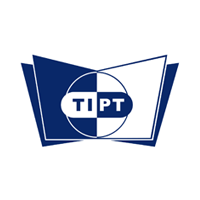
In addition to working with various types of drugs, cosmetics, medicines, and other pharmaceuticals, medical devices fall into the category of products that require regulation before being approved for organizational and public use.
Medical devices can include any number of products used in treatment, alleviation, diagnosis, or disease prevention for certain physical conditions. The most common devices include stethoscopes, electrocardiographs, thermometers, otoscopes, ophthalmoscopes, and many others.
Since these devices play an essential role in the healthcare system, it is crucial for individuals in regulatory affairs to ensure their safety and effectiveness. These professionals are responsible for developing, gathering, and filing the documentation required to support the licensing of these products. Read on to learn more about this role.
Responsibilities that Ensure Medical Device Safety
Before medical devices enter the healthcare system, there are a number of factors that need to be taken into account. Regulatory affairs professionals must ensure that these products do not infringe on certain laws, national health plans, production, and importation practices, as regulation requirements can differ in certain regions and countries.

In Canada, professionals in pharmaceutical regulatory affairs work with The Medical Devices Bureau of the Therapeutic Products Directorate (TPD), the nation’s regulators of medical devices developed for approval. As the national authority that monitors and evaluates each product’s safety and quality, it is their responsibility to examine and assess scientific information that surrounds the product. Factors they will consider during the examination include potential benefits or hazards associated with the device, analysis of clinical studies and testing, and whether the device’s labelling and instructions are correct and comprehensible to the general public.
Once a device has been approved, regulatory affairs professionals must continue to take responsibility for compliance, constantly reviewing regulations in specific countries and regions to ensure that it continues to meet with the standards expected.
A Combination of Experience and Knowledge in Regulatory Affairs Training
Medical devices developed without the proper knowledge can fail to perform adequately, or even be potentially dangerous to patients. Individuals with regulatory affairs training acquire an aptitude in medical device safety, and are qualified to eliminate any instance of errors and production of ill-equipped products. Due to their training, the possibility of poor regulatory practices and procedures are significantly reduced.

Students at schools like Toronto Institute of Pharmaceutical Technology will be introduced to regulations established for medical devices in Europe, Japan, and Australia, as well as North America, while gaining experience working with previously approved submissions from regulatory agencies to get a feel for how processes work within the industry.
Are you interested in earning a regulatory affairs diploma?
Contact the Toronto Institute of Pharmaceutical Technology to get started!
